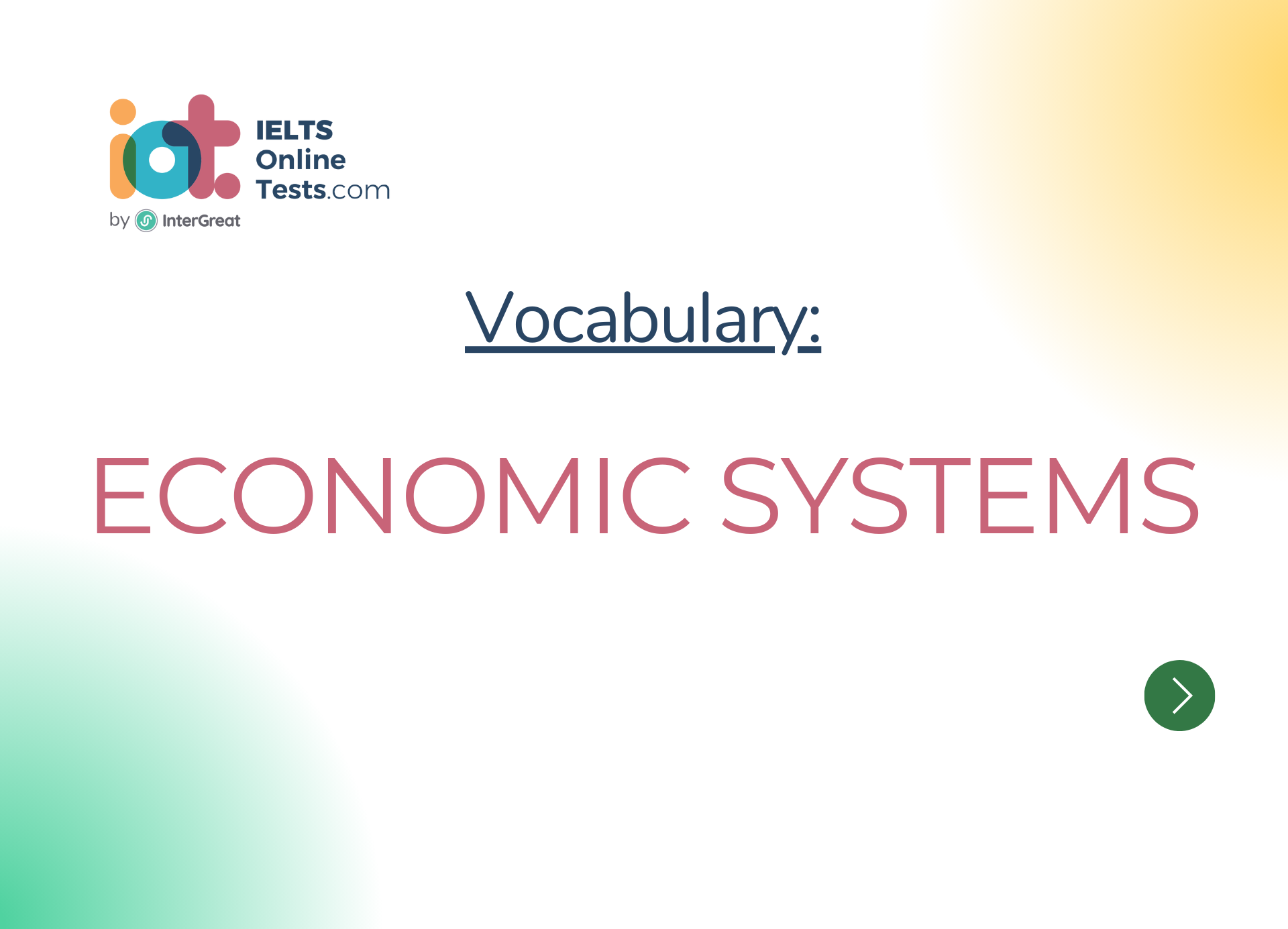
Economic systems
Here are some vocabulary words related to economic systems for IELTS band scores 4.5-6.0:
Economic System:
The way a society organizes the production, distribution, and consumption of goods and services.
Capitalism:
An economic system where the means of production and distribution are privately owned, and market forces determine prices and allocation of resources.
Free Market:
A market system where prices are determined by supply and demand without government intervention.
Competition:
Rivalry among businesses or individuals for market share and profits.
Entrepreneurship:
The activity of starting and managing a business venture, taking on financial risks in the hope of profit.
Supply and Demand:
The relationship between the quantity of goods producers are willing to sell and the quantity buyers are willing to purchase.
Profit:
The financial gain made from business operations after deducting expenses.
Consumer:
A person who purchases goods and services for personal use.
Producer:
A person, company, or country that manufactures or supplies goods and services.
Labor:
The workforce or human effort put into producing goods and services.
Inflation:
The general increase in prices and fall in the purchasing value of money.
Deflation:
A decrease in the general price level of goods and services.
Monopoly:
A market situation where a single seller or producer dominates the industry.
Oligopoly:
A market structure characterized by a few dominant firms.
Public Goods:
Goods and services that are non-excludable and non-rivalrous, provided by the government for the public.
Mixed Economy:
An economic system that combines elements of both market and planned economies.
Planned Economy:
An economic system where the government controls the production and distribution of goods and services.
Central Planning:
A system where a central authority or government makes economic decisions.
Socialism:
An economic system where the means of production are collectively owned and managed by the community or state.
Communism:
A political and economic ideology aiming for a classless society where the means of production are owned collectively.
Gross Domestic Product (GDP):
The total value of goods and services produced within a country's borders in a specific time period.
Gross National Product (GNP):
The total value of goods and services produced by a country's citizens, both domestically and internationally.
Market Economy:
An economic system where decisions on production and consumption are made by individual producers and consumers.
Subsidy:
Financial assistance provided by the government to support businesses or industries.
Tariff:
A tax imposed on imported goods to protect domestic industries.
Trade Liberalization:
The removal of trade barriers and restrictions to promote international trade.
Balance of Trade:
The difference between a country's exports and imports.
Foreign Direct Investment (FDI):
Investment made by a company or individual in one country into business interests located in another country.
Economic Growth:
The increase in the production and consumption of goods and services over time.
Economic Development:
The improvement of economic well-being and quality of life in a country.
Productivity:
The efficiency with which resources are used to produce goods and services.
Recession:
A period of economic decline, usually measured by a decrease in GDP for two consecutive quarters.
Austerity:
Economic policies aimed at reducing government budget deficits and debt.
Income Inequality:
The unequal distribution of income among the population.
Poverty:
The state of lacking sufficient income or resources for basic needs.
Wealth Disparity:
The unequal distribution of assets and wealth in a society.
Sustainable Development:
Economic growth that meets the needs of the present without compromising the ability of future generations to meet their own needs.
Fiscal Policy:
The use of government spending and taxation to influence the economy.
Monetary Policy:
The management of the money supply and interest rates by the central bank to control inflation and stabilize the economy.
Globalization:
The integration and interdependence of economies and cultures across the world.
It's important to understand these economic-related terms and their contexts to improve your English language skills for the IELTS exam. Practice using them in sentences and conversations to become more confident in your vocabulary. Good luck with your studies!




